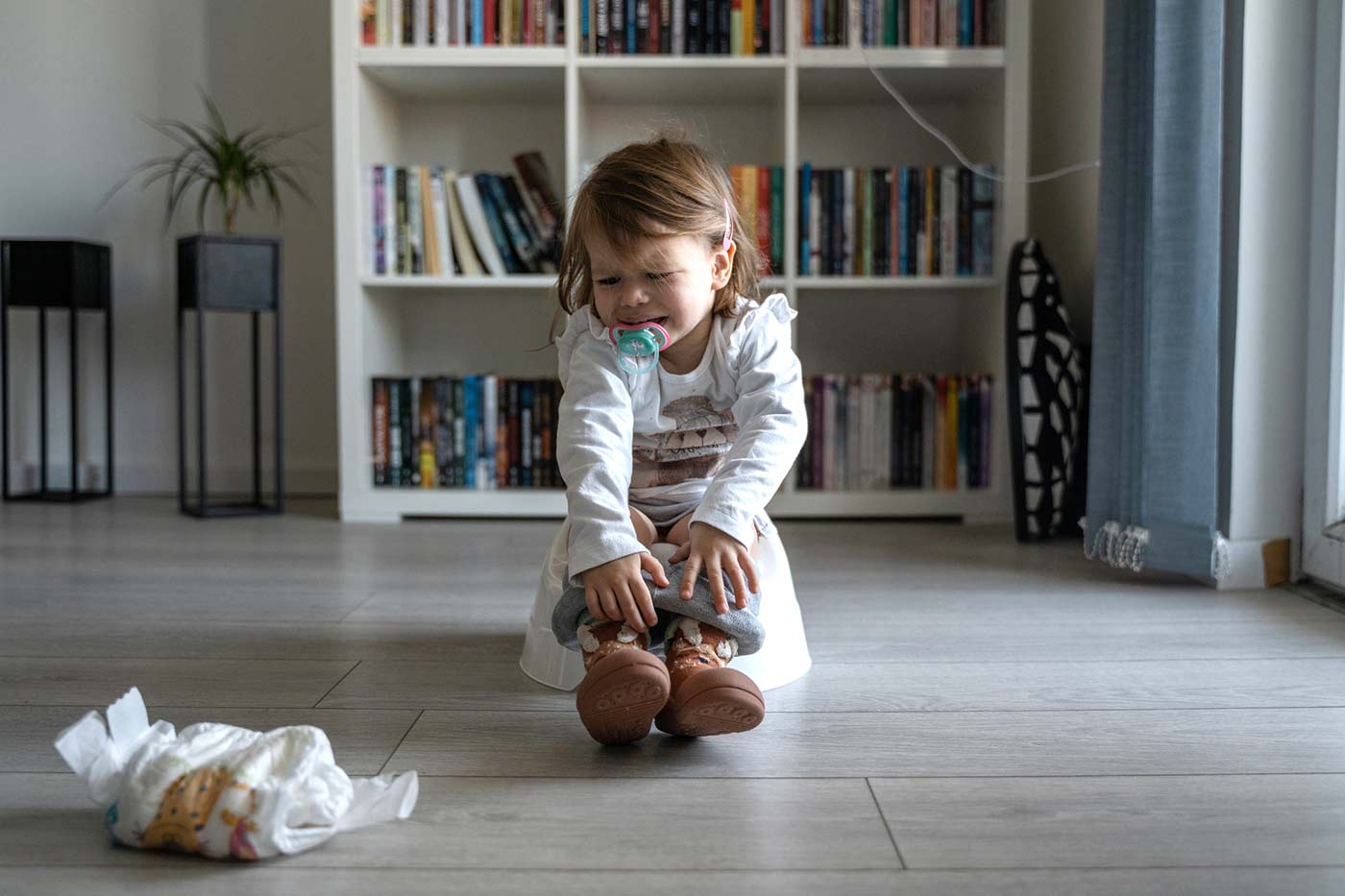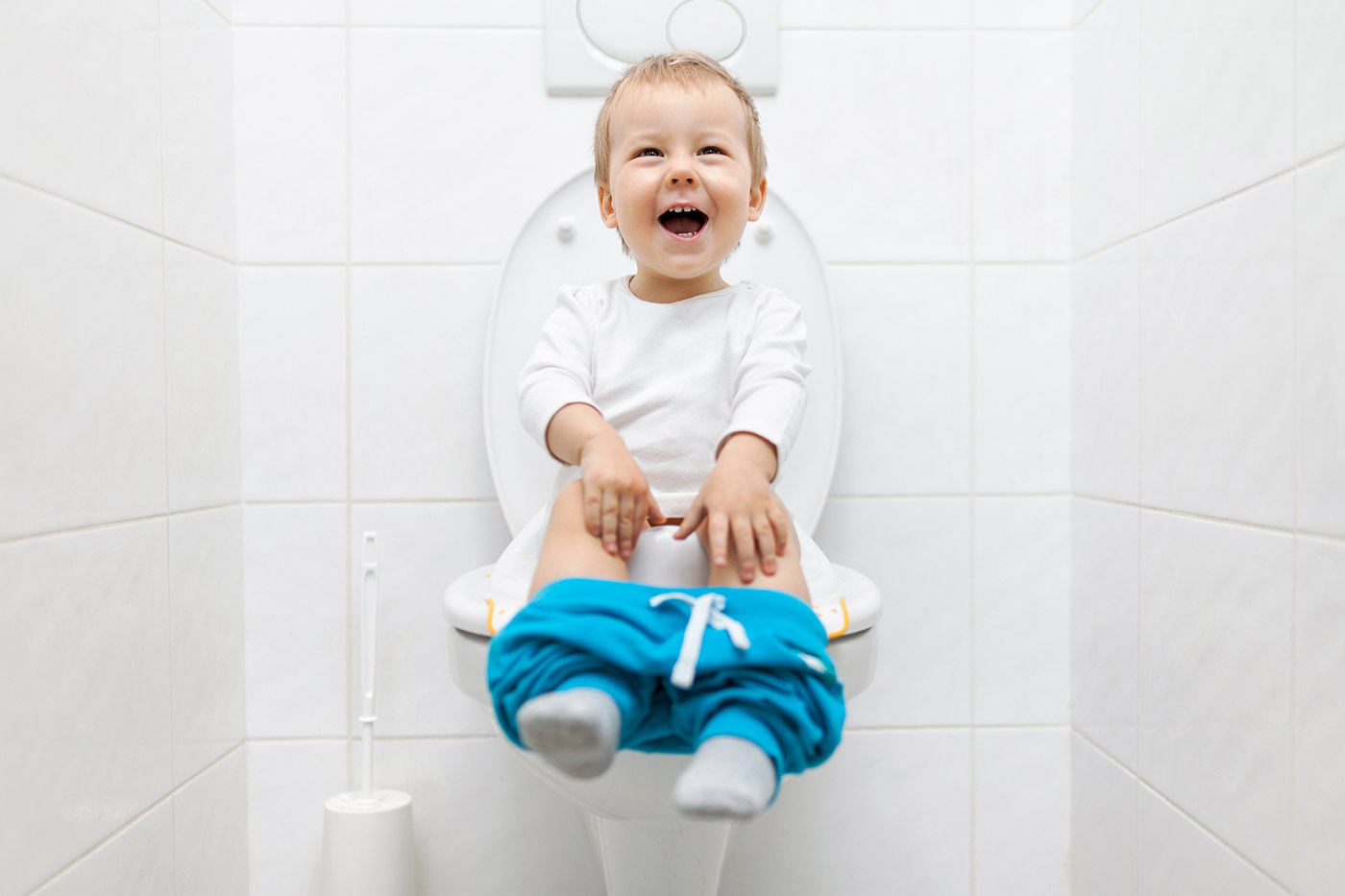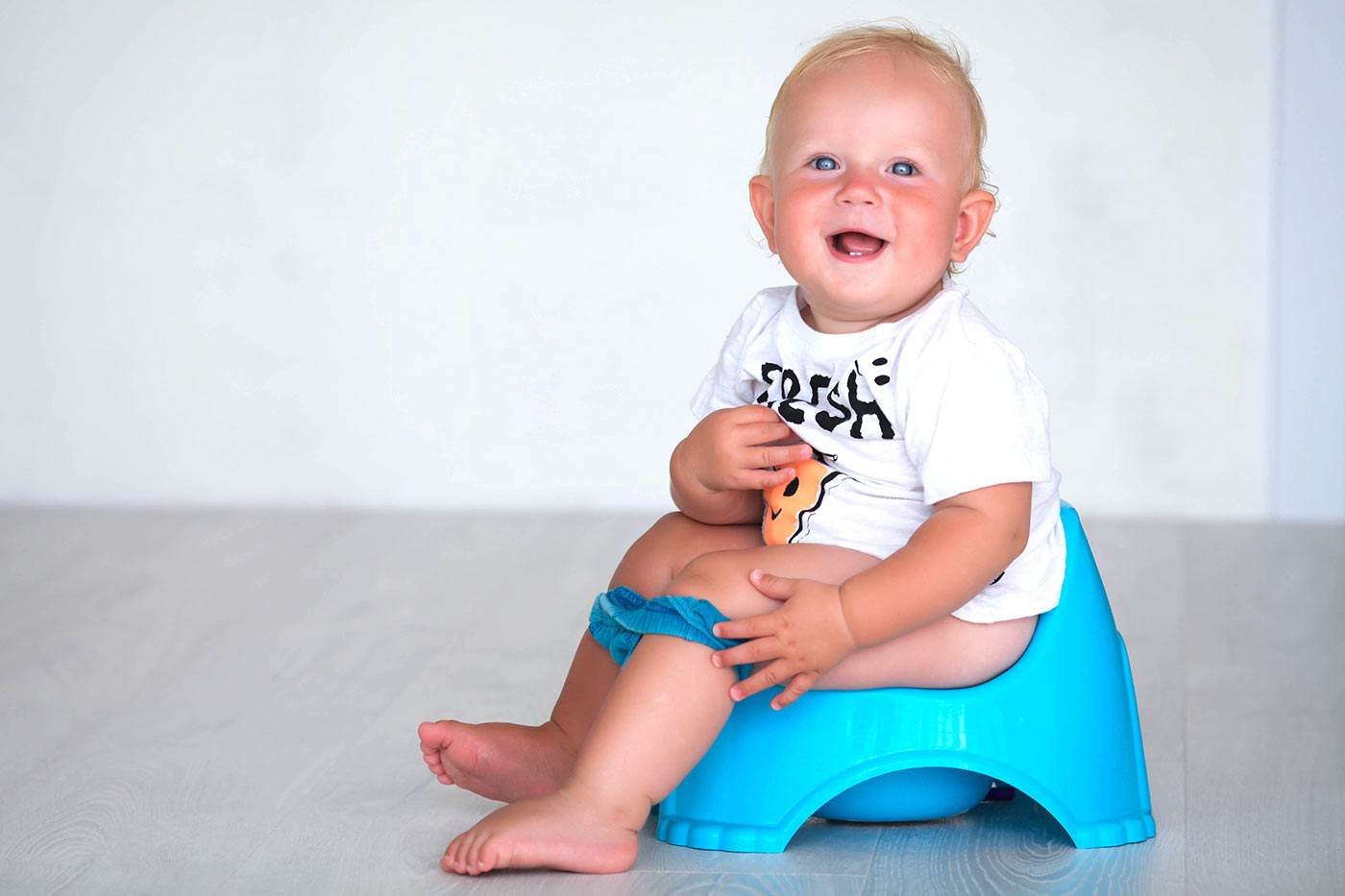5 Reasons Not to Worry When Your Toddler Refuses to Sit on the Potty
It’s never easy when your toddler refuses to sit on the potty. In this article, you’ll learn why you shouldn’t worry—and the steps to take to turn things around.

What do you do when your toddler refuses to sit on the potty? When he might even be scared to use it all?
After three kids—one of whom broke out in tears even just mentioning potty training—I’ve learned that worry and stress are the last things you need. That stickers and stars can only work so far. And that even if you think you’ve “backed off,” you’re still putting pressure in ways you may not realize.
In other words, I knew this was one area I couldn’t (and shouldn’t) try to control. Take a look at these five compelling reasons you shouldn’t worry—and what to do instead. As these parents said:
“This was very helpful after doing tons of research about what to do with my sweet, stubborn, 3 year old. Thank you.” -Karissa
“Thanks, Nina! Potty training was so overwhelming and stressful with kid #1 (school was pressuring us, threatening to give away his preschool slot), so your advice is helping us be more laid back with kid #2.” -Eleanor L.
Table of Contents
1. Using the potty is one thing your toddler can control
Unlike most household functions—the time to sleep, chores to do, even what to wear—having a bowel movement is one of the few things your toddler has complete control over. You literally can’t make his body pee or poop, no matter what.
It’s no wonder you end up with potty training resistance.
You might feel a loss of control, even feel threatened, at realizing there are things about him you have no choice over. Meanwhile, he feels frustrated at the pressure to do something he may not be ready or willing to do.
It’s a lose-lose situation.
Give him the choice to decide when to sit on the potty. Choices empower kids because, in a world driven by adults, they feel ownership and, in this case, about something important: their bodies. Let go of the need to control what “should” happen and let it unfold on its own.
Free email course: Want to potty train without the power struggles? Join our free 5-day email mini-course, Peaceful Potty Training! No more putting unrealistic deadlines on your child or using rewards that eventually fizzle. Sign up for the mini-course now. You’ll also get my newsletters, which parents say they LOVE:
“Hi Nina, I really enjoy and appreciate your newsletter emails. Sometimes they just reassure me that my feelings are valid and give me hope that things will improve. It is the only newsletter I actually read.” -Natalia Kavourinou
2. Your toddler sees potty training as a bad thing
It’s easy to assume that the more you talk about using the potty, the more your toddler can finally take to sitting on it. And when he refuses, it can be hard to let it go, to the point where you’re losing your temper and he’s in a crying fit.
The result? He’ll have a negative association with sitting on the potty. He knows it’s a point of contention for you and may even put up a fight because it’s a surefire way to get a reaction.
Or maybe he’s had bad experiences with using the potty. Perhaps being constipated at one point has made him afraid to poop in the potty, or he feels like he always has to stop what he’s doing to go to the bathroom.
If this is the case, back off from getting him to sit on the potty. And truly back off—sometimes we think we’re not talking about it much, but we’re still tense, anxious, or snappy. To completely avoid all power struggles, set a date for one week where you won’t mention the potty once.

3. You can’t compare your toddler to other kids
Many parents might point to their older kids and say, “I potty trained his sister when she was two years old!”
Perhaps you see other toddlers on playdates who’ve already ditched diapers for undies. Meanwhile, you can barely get your toddler to tell you when he needs to potty.
As easy as it is to worry whether your toddler can ever stop using diapers, the truth is, he will. It might be later than others, but all this stress and anxiety is useless when you realize that it’ll inevitably happen. Remember, no one enters kindergarten wearing a diaper.
Stop comparing his behavior and progress (or lack of it) to anyone else’s. If you feel pressured because of preschool requirements, reconsider whether that preschool is a good fit or talk to them about what they suggest.

4. Timing does not affect future success or current abilities
As parents, we can sometimes be competitive, don’t you think? We love to share that our kids started walking at 10 months or reading by 3 years old. We check off these milestones with a sigh of relief—one less thing to worry about.
Because we all know what happens when they don’t hit those milestones: we worry. We always have this elusive “future” harping on our backs, as if one delayed milestone might hold our kids back.
You probably already see how silly it is, right? In hindsight, when your toddler learns to use the potty has no bearing on his future success. No adult brags that they potty trained early at 1 year old—no kindergartener talks about it, either.
And you won’t find any correlation between how soon or how easily a child potty trained with how smart or talented he is. It’s not a factor in the future, so it shouldn’t cause you to worry in the present.
As I say in my book, You Are Enough:
“Consider milestones and timelines as a general gauge, but know that all kids develop at such a wide range. The goal isn’t to jump to worry and stress, but to ask yourself what, if any, can you do in this moment to help. If the answer is nothing, then focus more on staying calm and supportive, while reminding yourself that things will always work out one way or another.”
Let potty training happen on its own and remind yourself that when your toddler stops wearing diapers has no bearing on his abilities. Instead, build sitting on the potty into your routine, like encouraging him to go after waking up in the morning or before a nap.

5. Potty training should feel easy
Want a simple trick to see whether your toddler truly is ready to potty train? It should feel easy.
Yup, potty training, including getting her to even sit on the potty, should feel effortless. And when it’s not—when you’re stressed, worried, or arguing with her—that’s your clear sign your child is not ready for potty training.
Here’s why: when she decides and is physically and mentally ready, potty training shouldn’t take a huge amount of time or feel so stressful. It won’t be a battle between you two. It’ll happen on its own, and quickly at that, too.
Sure, you’ll deal with messes and accidents, regressions and setbacks. And there may be times when even your “ready” toddler puts up a fight. But you’ll likely notice a drastic difference between trying to potty train a toddler who’s not ready and one who is.
If you sense any resistance at all, hold off—even for a few weeks—and ask her again down the line.

The bottom line
My toddler tended to poop after every meal, so after dinner one night, I asked him, “Want to sit on the potty?” To my surprise, he complied. It was the first time he sat on the potty without his pants or diapers, and for a full 25 minutes, too.
Before this small success, I worried because I couldn’t even get him to sit on the potty, much less actually use it. But I learned that it’s in letting go of these worries that you can start making progress with potty training—even if it’s simply getting your toddler to sit.
Get more tips:
- How Many Potty Training Accidents Are Normal?
- How to Potty Train Gradually
- 8 Simple Ways to Start Preparing for Potty Training
- When to Stop Potty Training and Wait
- Potty Training in Three Days: A Step-by-Step Guide
Don’t forget: Join my newsletter and sign up for the 5-day email mini-course, Peaceful Potty Training today:

